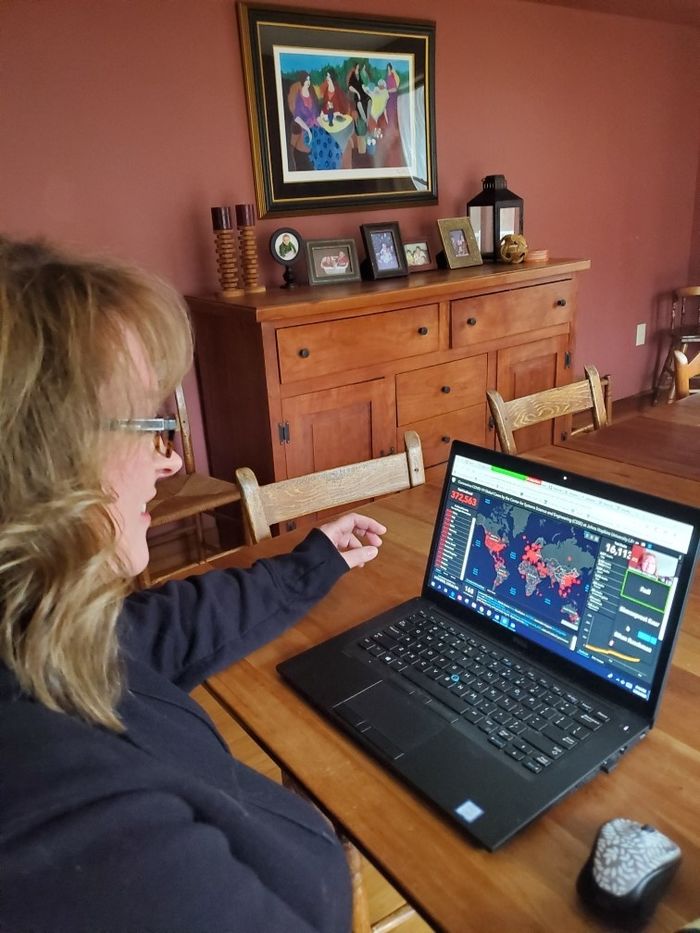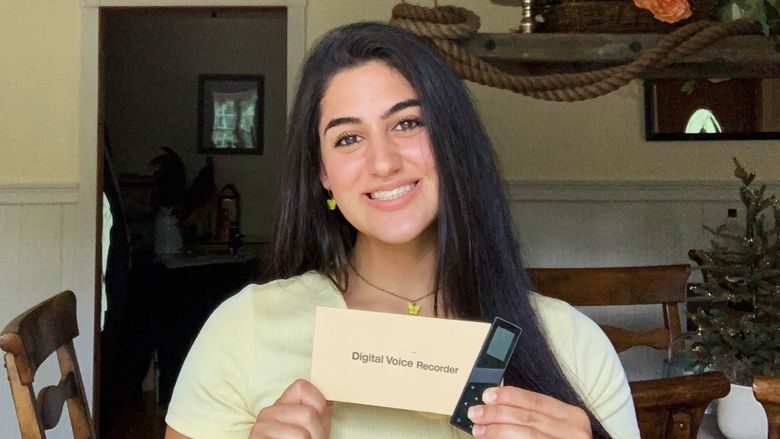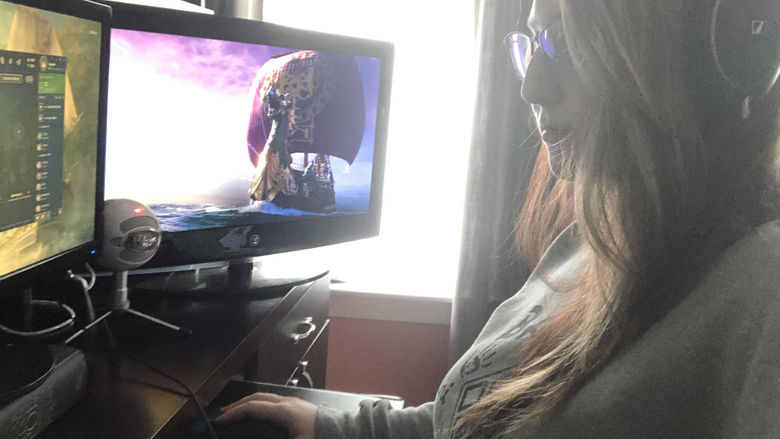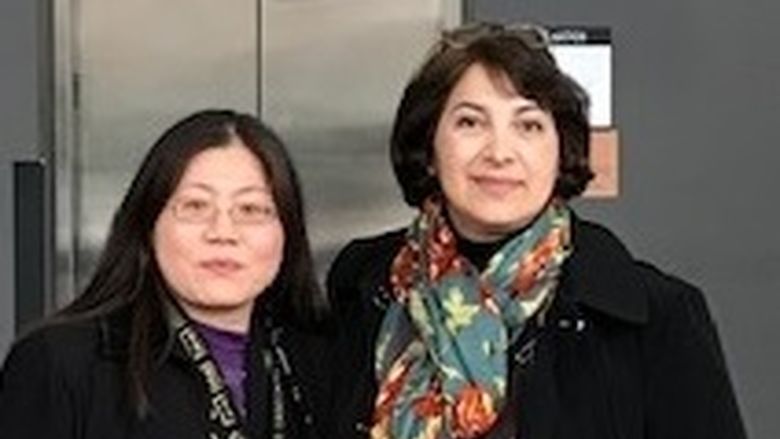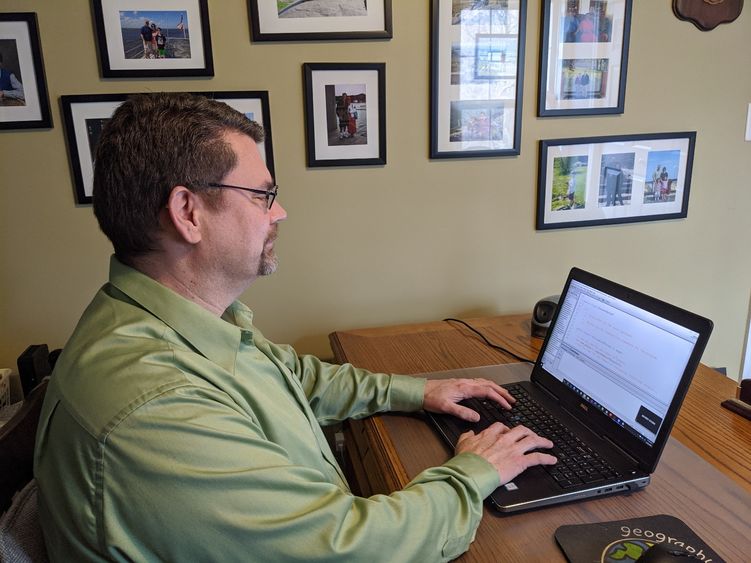
Jeffrey A. Stone, assistant professor of information sciences and technology, is leading his students through writing a simulation program together in class to model the spread of a virus among a population.
Professors at Penn State Lehigh Valley (PSU-LV) are incorporating the impacts of the COVID-19 pandemic into course material for the remainder of the 2020 spring semester.
Following health organization guidelines and governmental direction regarding the COVID-19 pandemic, Penn State Lehigh Valley transitioned to remote learning in mid-March for the remainder of the spring semester in order to protect the health of its students, community and faculty. During this time of change, PSU-LV professors have incorporated the pandemic in their classroom discussions emphasizing the importance of real-world examples in higher learning. Three professors’ efforts are profiled below.
“When the World Health Organization (WHO) declared the COVID-19 coronavirus a pandemic on Wednesday, March 11, many aspects of life and focus shifted with very good reason,” said Samantha Beebe, lecturer and program coordinator for biobehavioral health (BBH). “In BBH 416: Health Promotion II, we used this new normal in our class to show how in health promotion, we often have to shift gears quickly to meet the demands of a new danger and assist in containment and mitigation of infection. As a result, the course project has grown into a series of assignments to address health promotion needs surrounding young people and the COVID-19 pandemic.”
Instructors for health care-oriented programs are not the only ones pivoting to utilize the impacts of COVID-19 in their coursework. Due to travel restrictions, the class of ARTH 111: Prehistory to Medieval Art was unable to travel to Italy over spring break as originally planned. Following this change, the course’s instructor, Liz Flaherty, decided to orient the remainder of the course towards demonstrating the role that art plays in documenting disease outbreaks.
“We switched the course’s research goals,” said Flaherty, associate teaching professor and program coordinator for arts administration, and coordinator of PSU-LV’s honors program. “After the Italy trip was canceled, we focused our research on how the coronavirus pandemic is being depicted by artists. We are comparing it to how other plagues and epidemics were artistically portrayed in ancient history up through the medieval times. This focus will culminate in both a research paper and video presentation at the end of the course.”
Penn State Lehigh Valley students who are studying computer science are also exploring COVID-19. In IST 140: Introduction to Application Programming, students are writing a simulation program together in class to model the spread of a virus among a population. Though not specifically about COVID-19, many of the same principles apply.
“I wanted to bring the example of COVID-19 into the classroom to help engage the students with a timely topic,” said Jeffrey A. Stone, the course’s instructor and assistant professor of information sciences and technology. “I typically bring in examples with a real-world context to engage students while demonstrating the wider applicability of programming and computing in general. Setting a real-world context for the programs they write allows students to see how programming can be applied towards socially-relevant problems.”
To learn more about the steps the Lehigh Valley campus is taking in response to COVID-19, visit PSU-LV’s Coronavirus update page.
Dennille Schuler
Public Relations Specialist
Penn State Lehigh Valley
